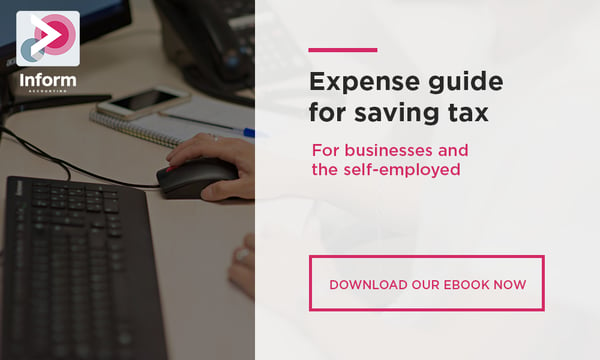BLOG
Choosing the right structure for your business

Not everyone will have the freedom to choose what legal form their business can take. Depending on how you have organised your operations and whether you intend to work on your own or with others will significantly affect the business structures available to you.
Whatever business structure you choose will have different legal and financial implications, not just for the business, but potentially for you as an individual as well.
So what are the four basic business forms?
Sole Proprietorship (Sole Trader)
|
|
A sole proprietorship is a business owned and operated by a lone individual. It is not a separate legal entity under the law, meaning that the debts and liabilities incurred by the business are incurred by the individual i.e. the business's debts are the sole proprietors debts. Although one of the easiest business structures to operate, it does not come without legal obligations - imposed most stringently through income tax. |
Partnership
|
|
A partnership is a business enterprise recognised under the law, owned and operated by two or more partners who will share ownership of the partnership assets and responsibility for its liabilities. The split between authority and responsibilities can be modified and is often detailed in the Partnership Agreement (it is recommended ALL partnerships have a documented PA). As a legal entity, a partnership can enter into contracts and borrow money, although creditors will usually ask for a personal guarantee from the partners. The partners are treated as individuals for tax purposes i.e. the partners are taxed on their individual income (which will include their share of partnership profits). |
Limited Liability Partnership (LLP)
|
|
An LLP, unlike an ordinary partnership, offers its members limited liability. It is a legal entity separate from its members, meaning it can enter into contracts (inc. employment contracts), sue and be sued, and grant charges over the assets it holds, all in its own name. The key filing difference between a partnership and an LLP is that an LLP must file a set of annual accounts at Companies House. The members are those individuals registered at Companies House, of which at least two must be ‘designated members’ responsible for making filings. Certain members will be taxed on their share of partnership profits under self-assessment, whereas others who receive a fixed profit share (considered as a salary) are to be taxed on that income as employment income, paying tax also under PAYE and Class 1 NICs. |
Limited Company
|
|
A limited company is a separate legal entity that has (largely) all the legal rights as an individual by statute. As with an LLP, a limited company can own its own assets, enter into legal agreements and is responsible for its own debts, as well as the requirement to file a set of annual accounts with Companies House. However, unlike an LLP, a limited company must pay tax on its profits, and must therefore complete and file a tax return (CT600 Corporation Tax Return) with HMRC. An incorporation form must be submitted to and approved by Companies House before it can start trading under a limited company name. As part of this, a company must adopt (and file) a Memorandum of Association and Articles of Association. Together, these documents formally govern the rights, responsibilities and obligations (either by the company or by statute) of the Shareholders, Directors and Officers of the company. |
The Pros and Cons of Each Structure
As with any decision, there are benefits to taking or not taking a particular course of action. Choosing the right structure for you business is no different.
Sole Proprietorship / Partnership
Benefits
-
Little to no formation costs (although legal costs may be incurred to prepare a partnership agreement which is advised)
-
Total ownership and control of the business means you can decide how money is spent, and what work is taken on.
-
Fewer filing and bookkeeping requirements (largely for sole proprietors)
-
Quick and easy decisions - decisions don’t need to go through a long chain of authority, you can make them on the spot.
-
All the profits of the business belong to the owners.
Drawbacks
-
Lower prestige - unincorporated businesses often don’t carry the same weight and impression as Ltd’s.
-
No guaranteed continuity - if a sole proprietor or partners pass away, the business ceases to exist.
-
Unlimited liability - the sole proprietor or partners are personally liable for the debts and other liabilities of the business.
Limited Liability Partnership / Limited Company
Benefits
-
Greater prestige - right or wrong, the perception of a limited company is that they are better established and organised. This often stands them in better stead when looking for funding from banks and other loan agencies.
-
Continuity of operations - ownership of the company can change (as shares are transferred, issued and sold) but the business continues to operate.
-
Funding - a company has more assets (i.e. shares) it can use to raise capital finance.
-
Tax Efficiencies - Owner-directors can pay themselves through a mix of salaries and dividends which is more tax efficient.
-
Limited Liability - Owners of the company are not personally liable for the debts of the company.
Drawbacks
-
Must be formally created at Companies House which incurs costs.
-
More difficult to withdraw money - there must be profit after tax available to withdraw dividends.
-
Legal Requirements - greater legal requirements in terms of filing deadlines, employment law etc.
-
Public record - Directors and shareholder details are made available on the public record.
Read more of Inform's tax blogs:
Live page: Accounting advice during business disruption
It's that wonderful time of the year...for fraudsters to pray on taxpayers!
Paying yourself a salary: What are the most tax efficient options for limited company owners?
Four key cashflow issues that could cripple your business (and how to avoid them)...



-2.png?width=64&name=oie_transparent%20(4)-2.png)
-2.png?width=90&name=oie_transparent%20(7)-2.png)
-2.png?width=80&name=oie_transparent%20(5)-2.png)
-2.png?width=90&name=oie_transparent%20(6)-2.png)

.jpg?width=1500&height=1000&name=amy-hirschi-K0c8ko3e6AA-unsplash-(5).jpg)

